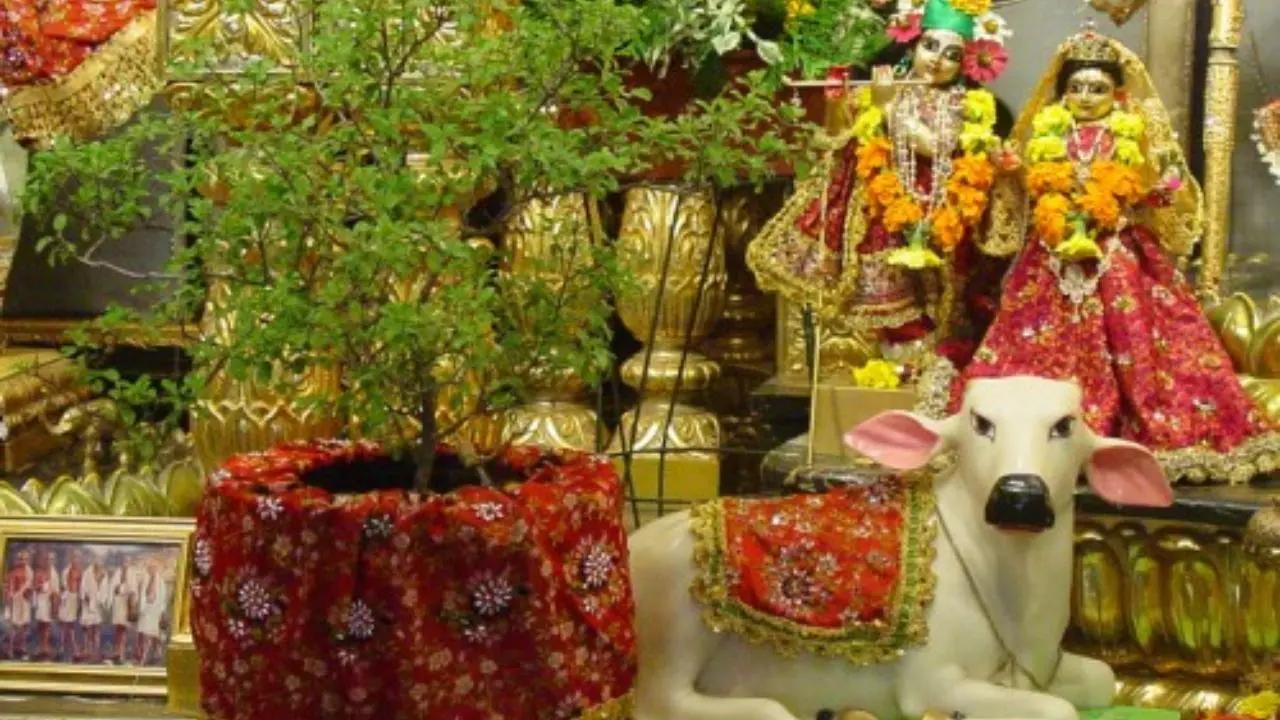Tulsi Vivah 2023 will be celebrated with great fanfare following the subdued celebrations caused by Covid-19. An important Hindu festival, Tulsi Vivah, commemorates the ritual marriage of Lord Vishnu and the holy plant Tulsi (holy basil).

Representative Image
Tulsi Vivah 2023 will be observed with great pomp after subdued festivities due to Covid-19. An important Hindu festival, Tulsi Vivah, commemorates the ritual marriage of Lord Vishnu and the holy plant Tulsi (holy basil). This religiously driven, auspicious day is widely commemorated throughout India and is of considerable cultural significance.
ADVERTISEMENT
Tulsi Vivah 2023 will be observed on November 24, Friday.
Traditionally, the Tulsi Vivah ritual is performed in October or November, during the Hindu month of Kartik. It has a particular place in the hearts of devotees and represents the beginning of the Indian wedding season.
According to Hindu mythology, Tulsi, who is renowned for her chastity and devotion, was wed to Lord Vishnu in the guise of his Saligram, a sacred stone depiction. This is the story of Tulsi Vivah. This marriage represents the eternal connection between the spiritual and material worlds and symbolises spirituality and respect for the natural world.
Beginning with the preparation of the sacred wedding rituals, Tulsi Vivah ceremonies take place. Often shaped like a goddess, a Tulsi plant is exquisitely decorated with vibrant garments, flowers, and other accessories. Seeking the blessings of Lord Vishnu and Tulsi for marital peace and happiness, devotees fast, offer prayers, and recite hymns honouring them.
Priests perform intricate rites that resemble a typical Hindu marriage throughout the spectacle that is the wedding ceremony. Family and neighbourhood members join in the chanting of Vedic hymns when the plant is given to Lord Vishnu.
Tulsi Vivah is observed with varying traditions and enthusiasm in various parts of India. It's celebrated in a big way in certain places and more quietly in homes in others. To commemorate this auspicious occasion, communities arrange processions, cultural events, and the distribution of prasad, or spiritual offerings.
Beyond its religious setting, Tulsi Vivah holds great value. Reknown for its therapeutic qualities, tulsi is cherished for its restorative qualities and is thought to cleanse the surrounding area. Because of this, the event also honours the plant's therapeutic qualities and encourages domestic growth and use.
Additionally, the Tulsi Vivah ceremonies uphold the principles of harmony, loyalty, and dedication in interpersonal relationships. By drawing comparisons between the heavenly union of Tulsi and Lord Vishnu and the matrimonial partnership, it highlights the sanctity of marriage and the bond shared between couples.
To put it simply, Tulsi Vivah is a celebration that blends spirituality, cultural values, and respect for the natural world rather than only being a religious event.
 Subscribe today by clicking the link and stay updated with the latest news!" Click here!
Subscribe today by clicking the link and stay updated with the latest news!" Click here!











